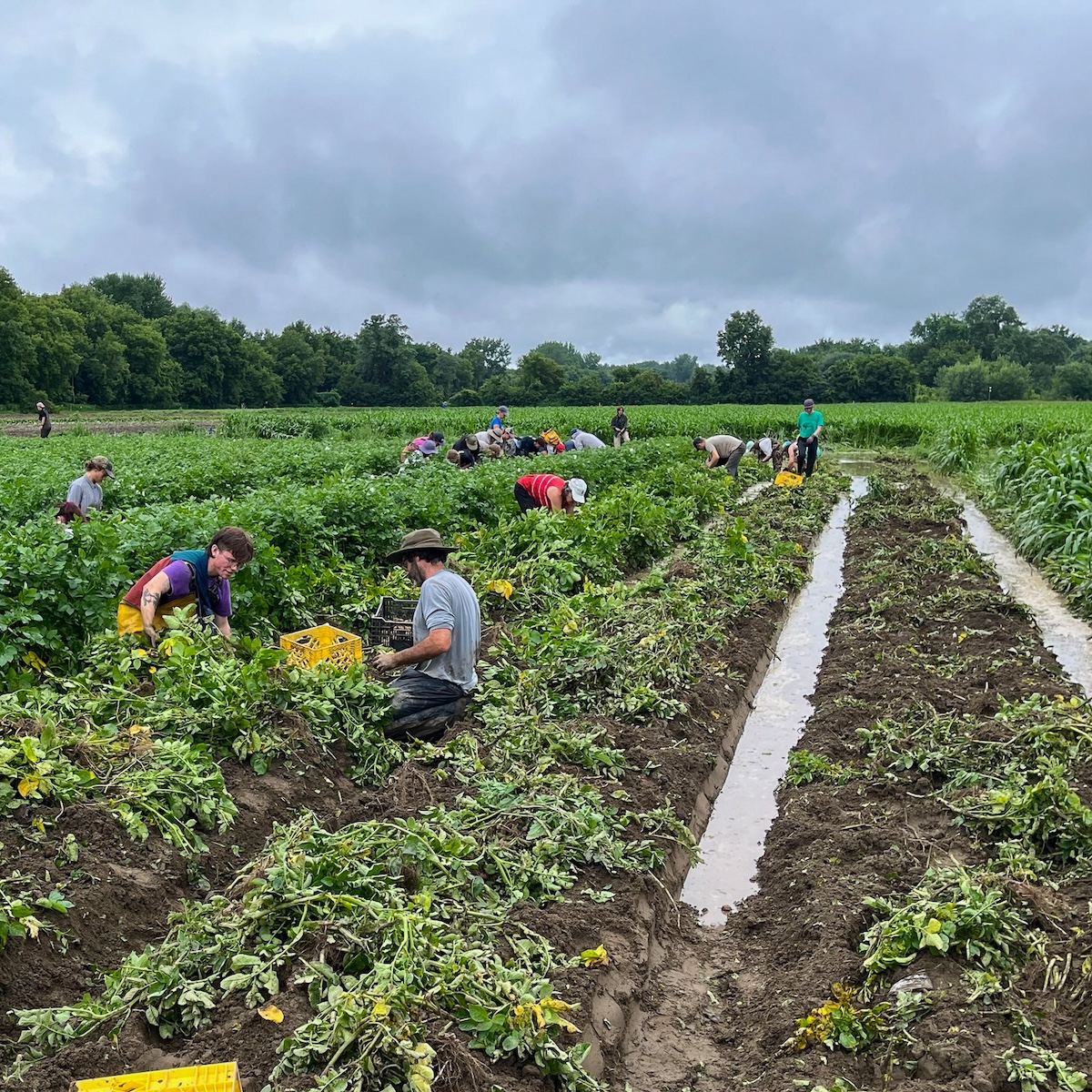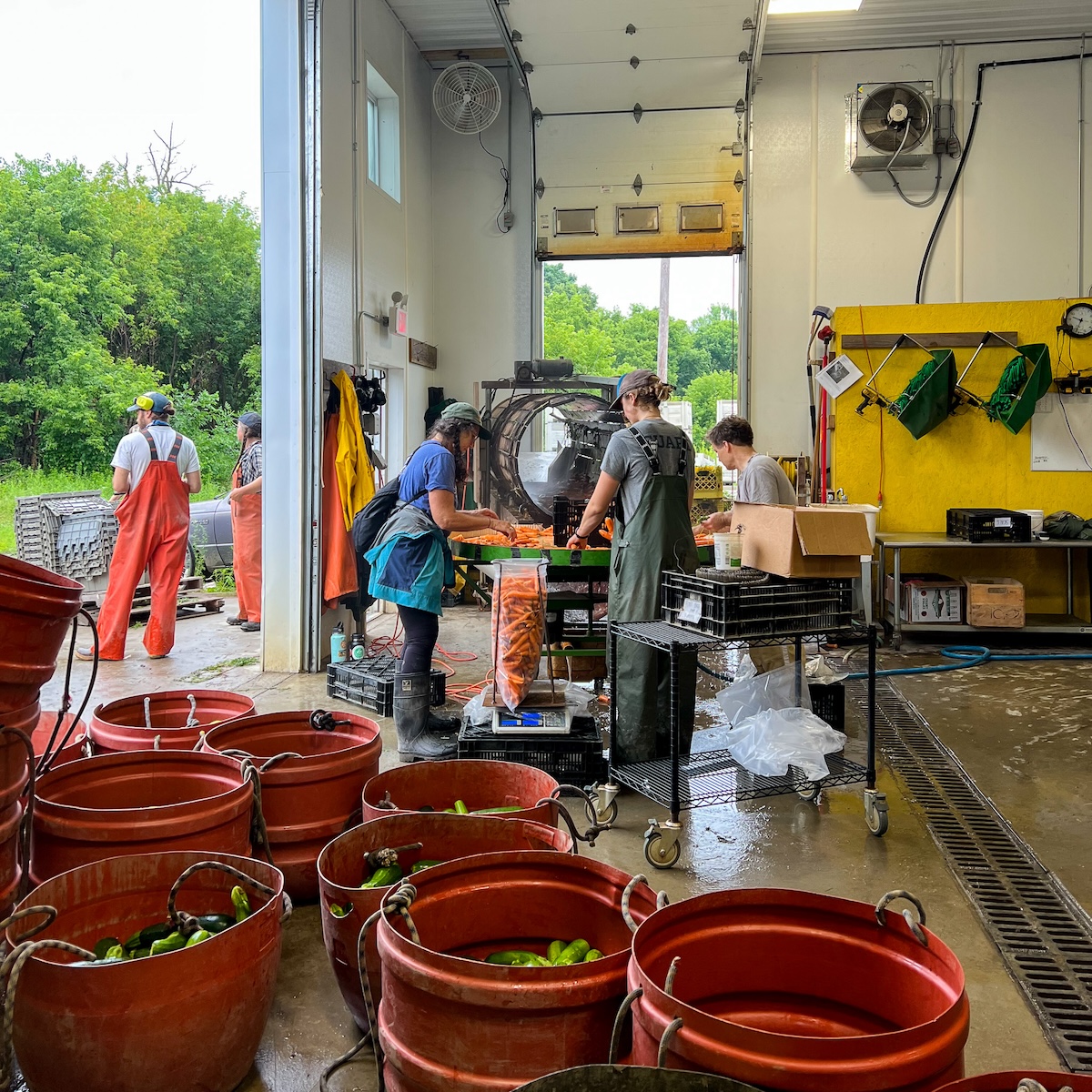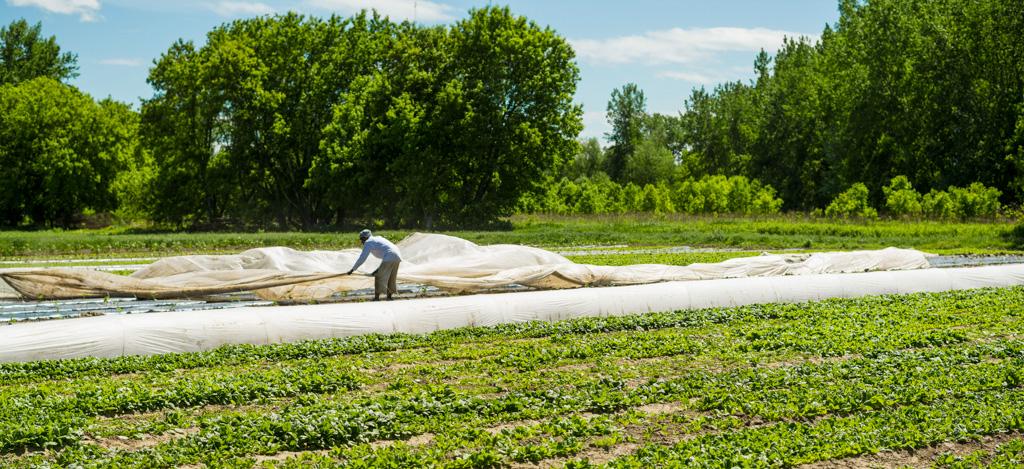July 11, 2024
We know many folks have heavy hearts today, facing surging flood waters a year and a day after our last “historic” flood.
Here’s what we know so far: A number of farms have been inundated with floodwater. The Winooski River and its tributaries are carrying the bulk of the heavy rains, and the floodwaters are just now reaching their projected peak in some locations as they surge downriver. It seems likely that the effects of this flood will be less widespread than last year’s flood. While this is little consolation to those who are affected by floodwater, we know that this means more people are faring well and available to help out their neighbors who are not.
For Affected Farmers:
If you are a farmer impacted by this storm as it continues to unfold, please do not hesitate to reach out. Whether you need support navigating the available emergency funding resources, want help finding volunteers to come to your farm, or just want to check in—we are here for you. You can contact the office directly or fill out our intake form for accessing NOFA-VT services and technical assistance. If you are dealing with the serious emotional impact of this event, you are not alone and Farm First provides free access to counselors, peer support, and other resources.
Since last year, we have participated in a statewide task force focused on emergency natural disaster relief. That group came back together yesterday and met again this morning. We will continue to keep in touch as potential state and national emergency resources become available. Please complete the survey from the Vermont Agency of Agriculture, Food & Markets in the coming weeks to help us assess the scope of the damage to farms statewide. This survey will also collect data the state needs to access federal emergency funds. The NOFA-VT Farmer Emergency Fund is also in place and we encourage folks with any level of damage to apply.
If you are certified organic and have immediate questions about potential certification impacts to your farm from the flooding, please check out answers to some frequently asked questions that we put together last summer, or feel free to contact Vermont Organic Farmers at 802-434-3821 or info@vermontorganic.org.
For The Whole Community:
If you haven’t been affected but would like to support those who have been, please consider making a donation to NOFA-VT’s Farmer Emergency Fund online or sending a check to NOFA-VT, PO Box 697, Richmond, VT 05477 (write Farmer Emergency Fund in the memo). These funds are mobilized quickly to affected farms in our community during times of crisis. Based on the damage we’re already seeing, we know that we will need significant resources in the fund this year; please donate if you can and help us by spreading the word far and wide. Thank you!
While our farmers will rise (again) to meet the waters, we need durable changes that address the reality of the unfolding climate crisis. Farmers do crucial work tending ecosystems and producing food, yet are faced with challenging market dynamics, slim margins, and weak structural support despite the necessary role they serve. Additionally, organic farmers are already on the frontlines of the climate crisis, contending with its brutal impacts while simultaneously mitigating them through their farming practices. Organic farming practices create more erosion-resistant soil, shore up riverbanks through treed buffers, and sequester atmospheric carbon. Support for affected farms is crucial not only for their recovery in the coming days and weeks but also for building a more just, sustainable food system in the long term.
We may not immediately change the extreme weather, but we can come together to support each other and change policies to make sure our farms and communities are more resilient. If you want to get more involved in taking collective action for a livable future, we invite you to become a NOFA-VT member. By organizing together, we grow the power we need to make a real impact and move towards our collective vision for Vermont: thriving farms and agriculturally-rooted communities that support the long-term wellbeing of the earth and all its people. This coming legislative session we will be doubling down on our advocacy and organizing around the state to build stronger safety nets for farms and investments in practices that keep our food system resilient. If you’re interested in mobilizing and engaging in this work, this work, please let us know.
Thanks to all of you who have invested in local farms by building relationships with them, advocating for better public policy, buying local, showing up in their times of need, donating, joining the NOFA-VT membership, sharing costs and risks with farmers by joining a CSA program, and more.
In community,
The NOFA-VT & Vermont Organic Farmers Staff & Board
802-434-4122


Farmers, volunteers, and NOFA-VT staff harvesting and washing produce at Intervale Community Farm in Burlington this morning before the flood waters peaked.

